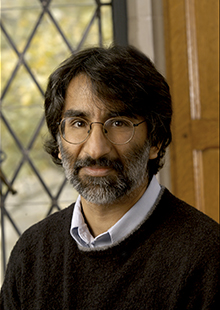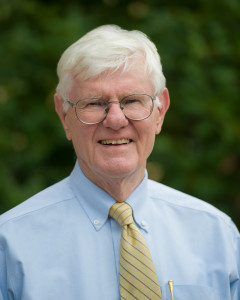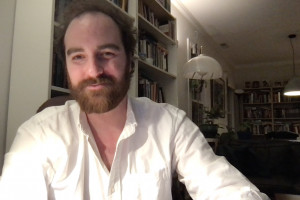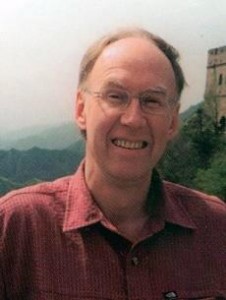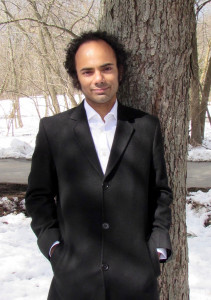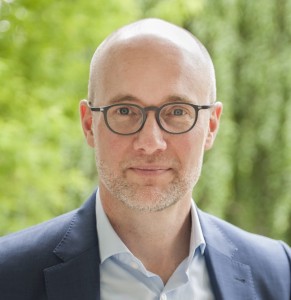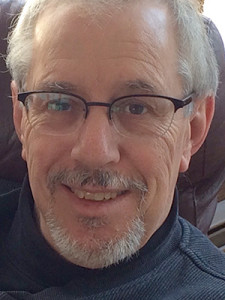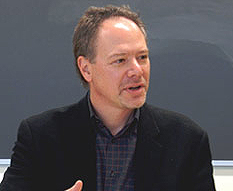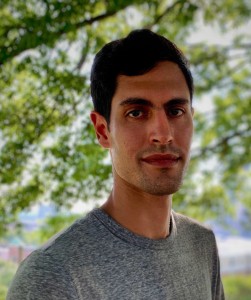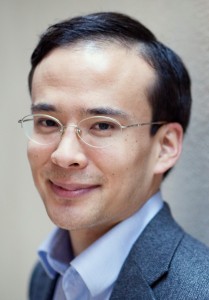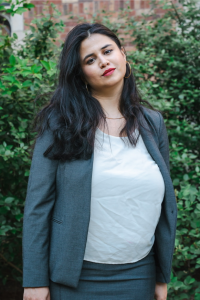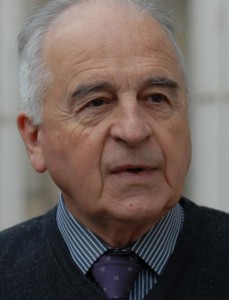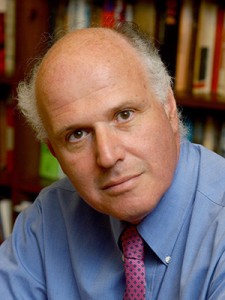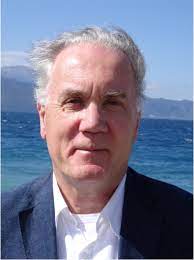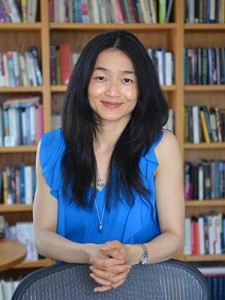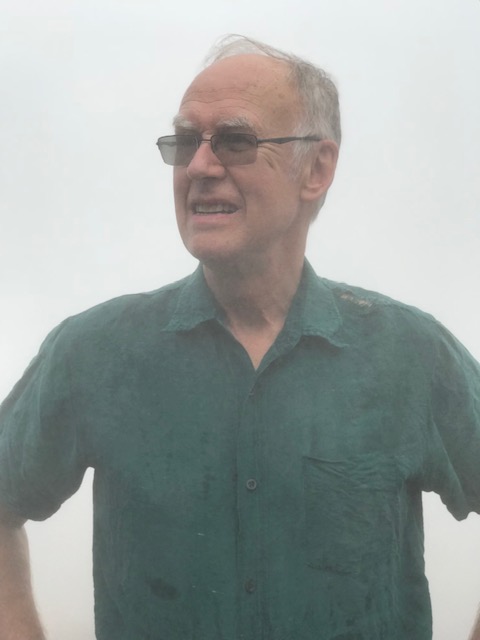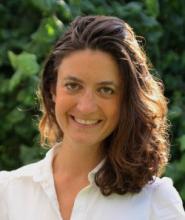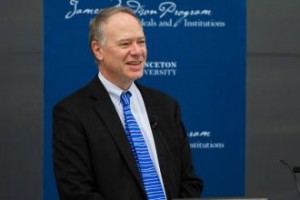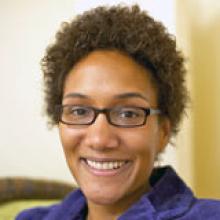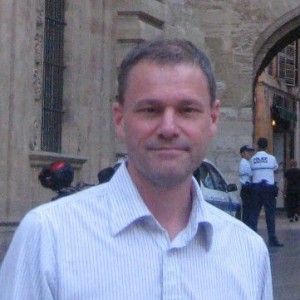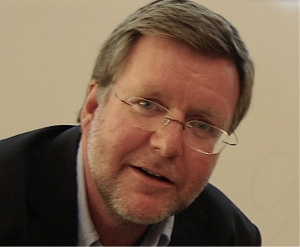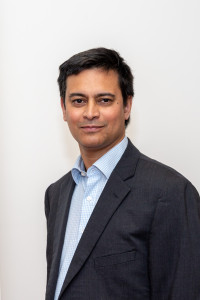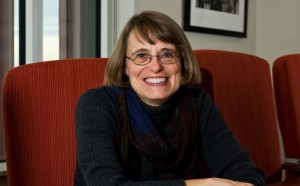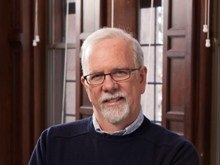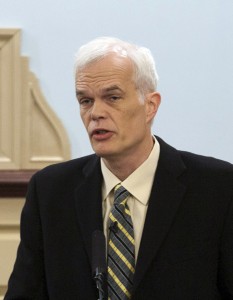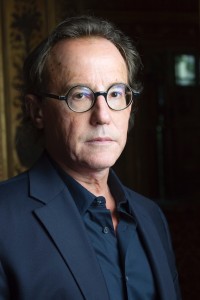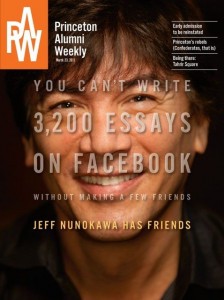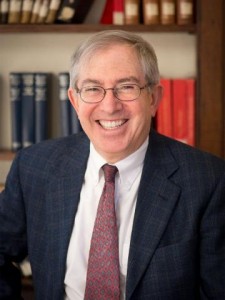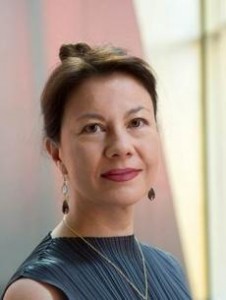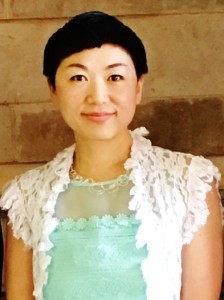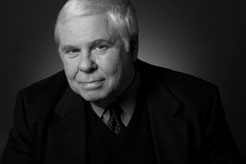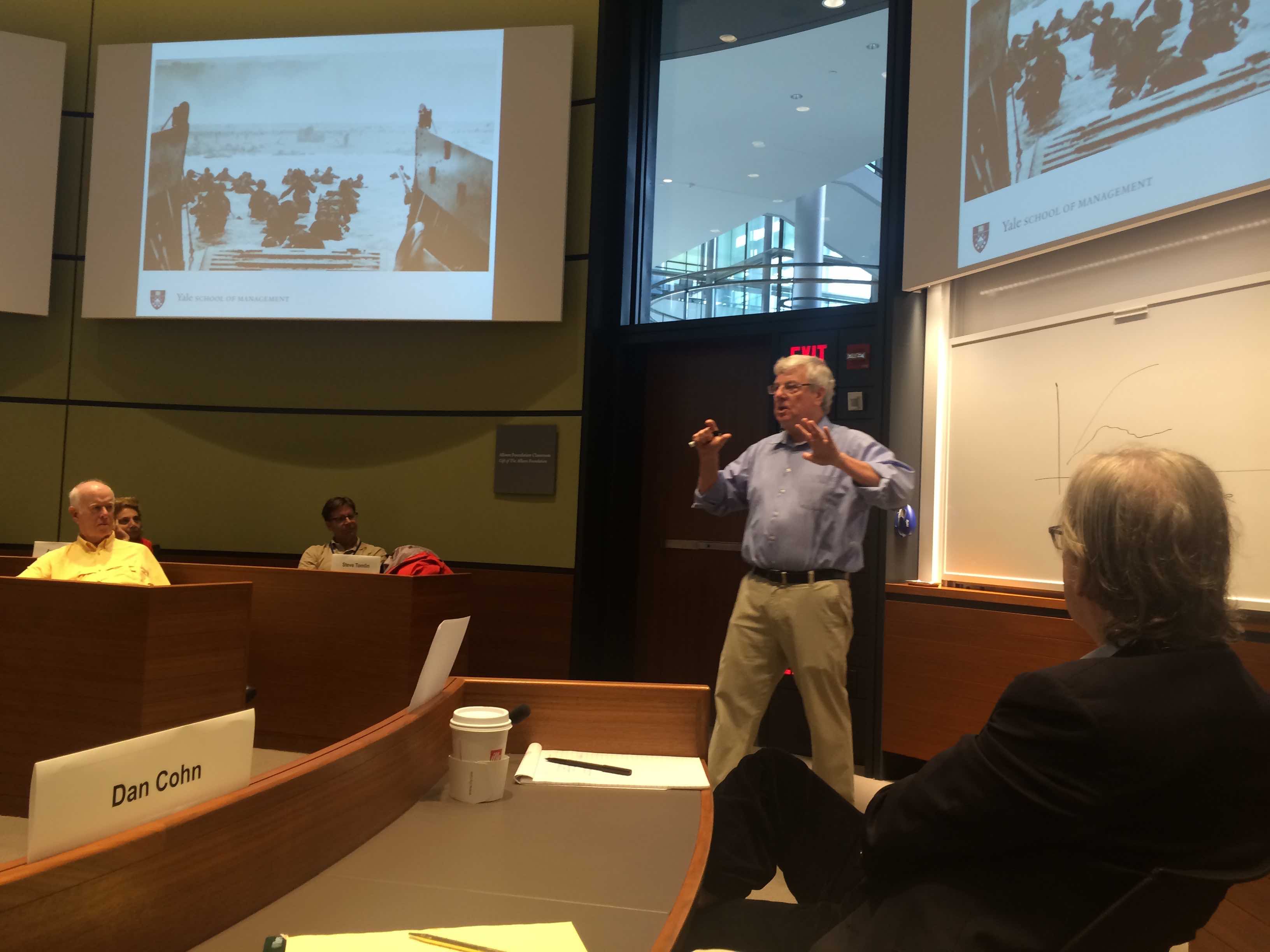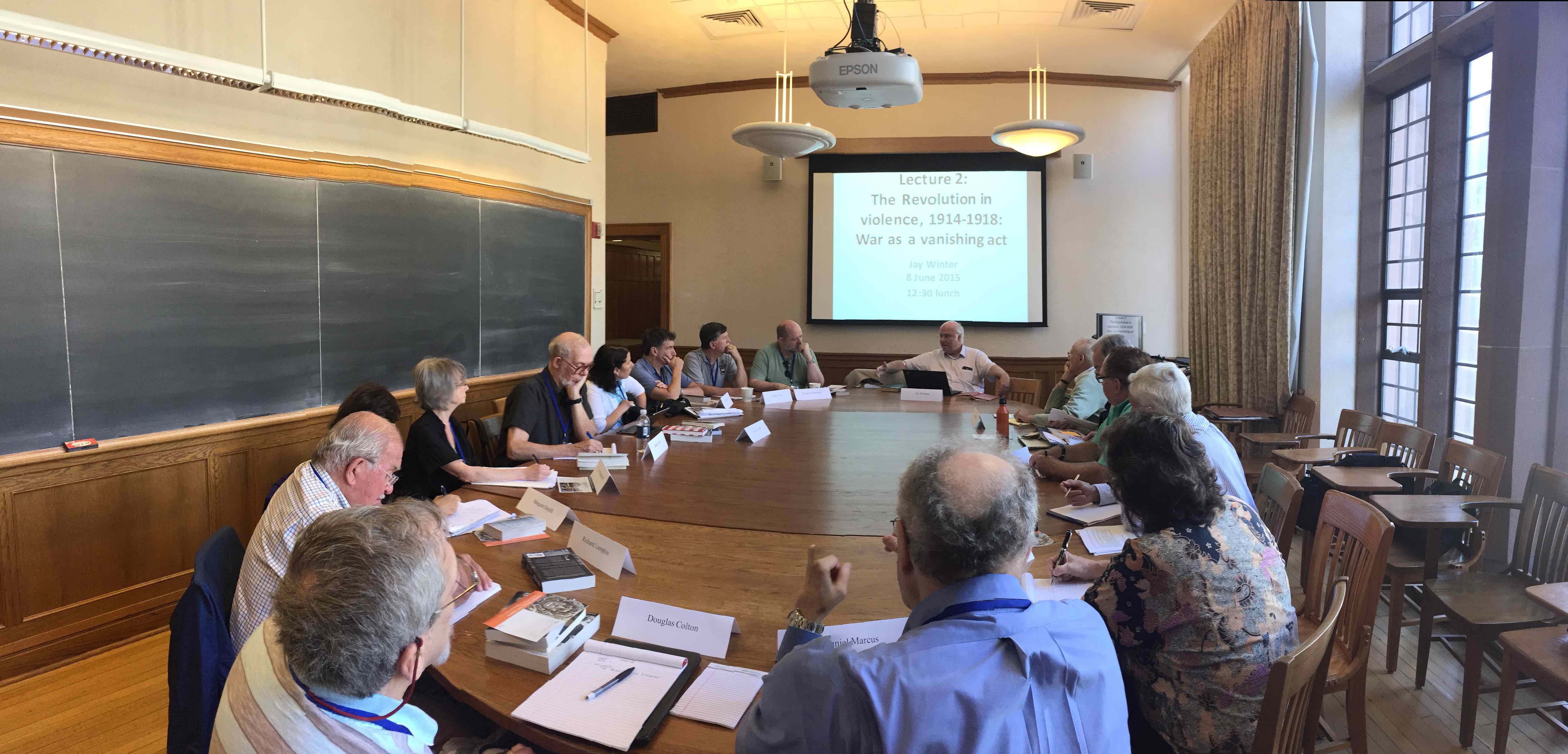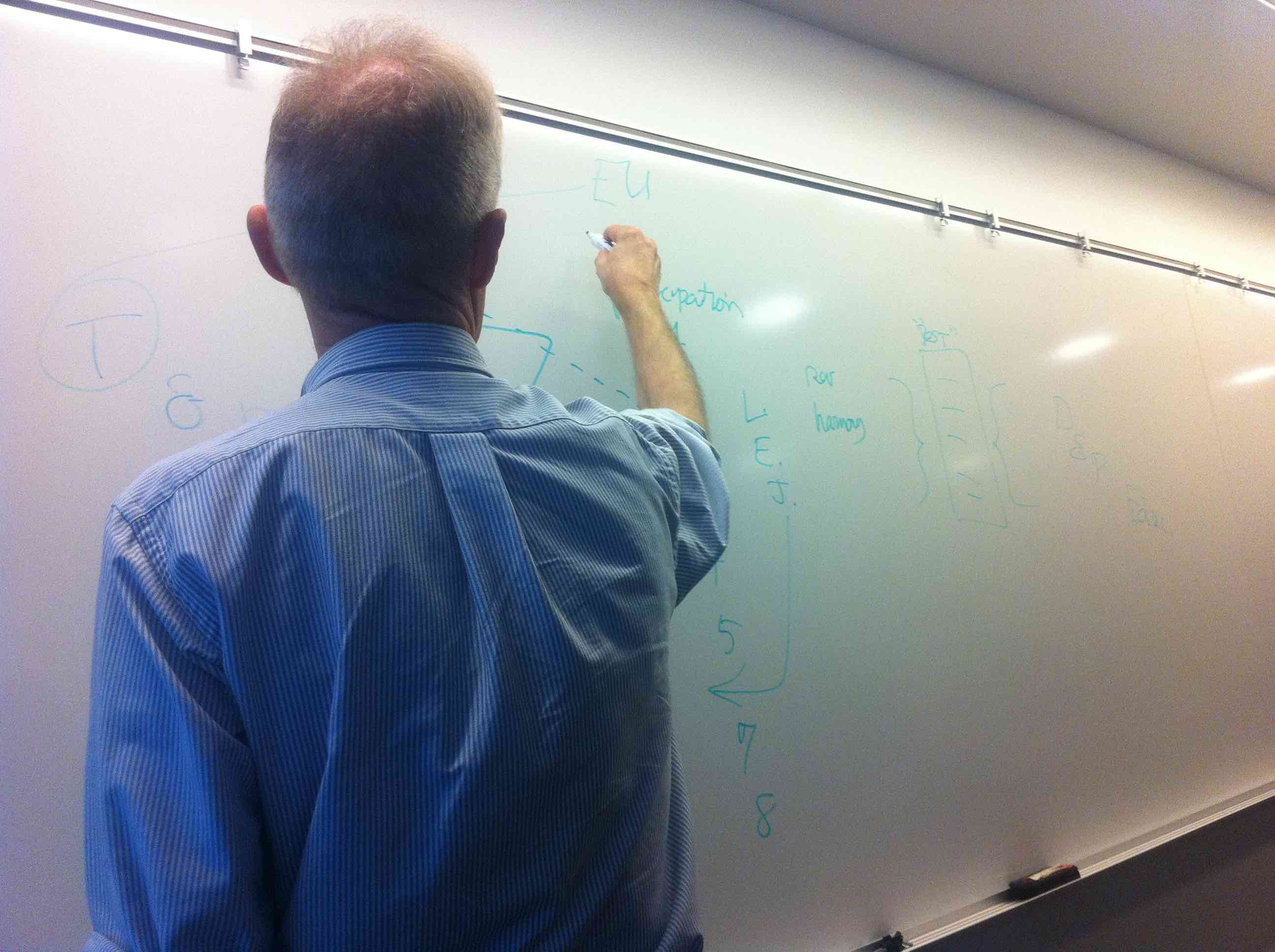An Incredible Asset
EverScholar, with its emphasis on interdisciplinary teaching, seminar sessions, outstanding participants (“EverScholars”) who prepare impeccably, and innovative course topics, is proud to have attracted the great institutions’ most learned scholars – and their best teachers. The passion and joy of EverScholar participants, faculty and EverScholars alike, has not gone unnoticed – our faculty not only return for subsequent years, but they assist us in recruiting more of their finest colleagues. Our faculty frequently will stay in class for sessions taught by other faculty, and almost without exception, they join us for many of our meals and special events. The result is that faculty are an integral part of the EverScholar Community, and the special character of their interaction with alumni enhances the experience beyond measure.
Here, then, with pride, we present our lead and guest faculty.
Andy Lipka talks about the joys of the EverScholar faculty.
Lead Faculty – “Reverberations of the Revolution” (January and March 2024 programs)
Akhil Reed Amar
Sterling Professor of Law and Political Science, Yale University
Akhil Reed Amar is Sterling Professor of Law and Political Science at Yale University, where he teaches constitutional law in both Yale College and Yale Law School. After graduating from Yale College, summa cum laude, in 1980 and from Yale Law School in 1984, and clerking for then Judge (now Justice) Stephen Breyer, Amar joined the Yale faculty in 1985 at the age of 26. His work has won awards from both the American Bar Association and the Federalist Society, and he has been cited by Supreme Court justices across the spectrum in nearly 50 cases—tops among all non-emeritus scholars. He regularly testifies before Congress at the invitation of both parties; and in surveys of judicial citations and/or scholarly citations, he invariably ranks among America’s five most-cited mid-career legal scholars. He is a member of the American Academy of Arts and Sciences and a recipient of the American Bar Foundation’s Outstanding Scholar Award. In 2008 he received the DeVane Medal—Yale’s highest award for teaching excellence. He has written widely for popular publications, including The New York Times, The Washington Post, The Wall Street Journal, Time, and The Atlantic. He was an informal consultant to the popular TV show, The West Wing, and his constitutional scholarship has been showcased on The Colbert Report, The O’Reilly Factor, and Constitution USA with Peter Sagal. He is the author of dozens of law review articles and several books, including The Constitution and Criminal Procedure(1997), The Bill of Rights (1998—winner of the Yale University Press Governors’ Award), America’s Constitution (2005—winner of the ABA’s Silver Gavel Award), America’s Unwritten Constitution (2012—named one of the year’s 100 best nonfiction books by The Washington Post), The Law of the Land (2015), and The Constitution Today (2016—named one of the year’s top ten nonfiction books by Time magazine). His most recent book is the landmark work, The Words That Made Us: America’s Constitutional Conversation, 1760-1840. In 2017 he received the Howard Lamar Award for outstanding service to Yale alumni. He is Yale’s only currently active professor to have won the University’s unofficial triple crown—the Sterling Chair for scholarship, the DeVane Medal for teaching, and the Lamar Award for alumni service. He co-hosts a leading weekly podcast, Amarica’s Constitution, with EverScholar President Andy Lipka.
Professor Amar is well-known to EverScholar participants; many of us have been taught by him in a number of prior programs. He also sits on EverScholar’s Faculty Advisory Board and is a member of its year-round discussion group.
Gordon S. Wood
University Professor of History Emeritus, Brown University
Gordon S. Wood is Alva O. Way University Professor Emeritus at Brown University. He received his B.A. degree from Tufts University and his Ph.D. from Harvard University. He taught at Harvard University and the University of Michigan before joining the faculty at Brown in 1969. He is the author of many works, including The Creation of the American Republic, 1776-1787 (1969), which won the Bancroft Prize and the John H. Dunning Prize in 1970, and The Radicalism of the American Revolution (1992), which won the Pulitzer Prize for History and the Ralph Waldo Emerson Prize in 1993. The Americanization of Benjamin Franklin (2004) was awarded the Julia Ward Howe Prize by the Boston Authors Club in 2005. His book Revolutionary Characters: What Made the Founders Different was published in 2006, and The Purpose of the Past: Reflections on the Uses of History was published in 2008. His volume in the Oxford History of the United State entitled Empire of Liberty: A History of the Early Republic, 1789-1815 (2009) was given the Association of American Publishers Award for History and Biography in 2009, the American History Book Prize by the New York Historical Society for 2010, and the Society of the Cincinnati History Prize in 2010. In 2011 he was awarded a National Humanities Medal by President Obama and the Churchill Bell by Colonial Williamsburg. In 2011 he also received the Arthur M. Schlesinger Jr. Award from the Society of American Historians. In 2012 he received an award from the John Carter Brown Library and the John F. Kennedy Medal from the Massachusetts Historical Society. In 2015 he received the Centennial Medal from the Harvard University Graduate School. Professor Wood is a fellow of the American Academy of Arts and Sciences and the American Philosophical Society. He taught in the memorable EverScholar program, “The First American Founding,” in 2021.
Paul Grimstad
Director of Undergraduate Studies, Humanities and Lecturer in English and Philosophy, Yale University
Paul Grimstad is Director of Undergraduate Studies in the Humanities program and Lecturer in English and Philosophy at Yale University. As such, he has a key role in EverScholar’s beloved Directed Studies program there. He writes regularly for The Believer, Bookforum, London Review of Books, The New Yorker, n+1, The Paris Review, Music and Literature, The New Republic, Times Literary Supplement and other journals and magazines. His “Miles the Mercurial” was a notable selection for Best American Essays of 2021 (ed. Kathryn Schulz). His next book Interested in Everything and Nothing Else: On the Polymath is under advance contract with Princeton University Press.
He is the author of Experience and Experimental Writing: Literary Pragmatism from Emerson to the Jameses (Oxford, 2013) which was recently the focus of a symposium in the journal Nonsite, and has contributed chapters to the Oxford Handbook to Edgar Allan Poe, Melville’s Philosophies, Stanley Cavell and Literary Studies, the Oxford History of the Novel, and to forthcoming volumes The Jamesian Mind and The New Cambridge Companion to Ralph Waldo Emerson. While an assistant professor of English at Yale he received the Sarai Ribicoff ’79 teaching prize for “instruction and character that reflect the qualities of independence, innovation, and originality.” He has taught literature and philosophy at NYU, Columbia and Yale.
Benjamin Barasch
Lecturer in the Humanities and English, Yale University
Benjamin Barasch is a Lecturer in Humanities and English at Yale University and in summer 2024 a visiting professor at Deep Springs College. He is a fellow of the Yale’s Whitney Humanities Center and Berkeley College, of which he is a proud alumnus (BA 2009). He is a literary scholar, having received his PhD from Columbia University in 2019 with a dissertation on the idea of vitality in American literature. At Yale he pursues his humanist vocation through teaching both the Literature and History/Politics tracks of Directed Studies (for which he has lectured on authors including Plutarch, St. Paul, Hegel, Tocqueville, and Nietzsche), foundational English department courses on the epic tradition from Homer to Joyce and American literature from Emerson to Baldwin, and has designed and taught seminars on the nature of value, personal identity in modern literature and philosophy, American Romanticism, and Bob Dylan. A strong believer in the essential value of liberal education, he is to committed to working with a variety of communities beyond undergraduates, from alumni programs (he teaches for both Yale Alumni College and EverScholar) to the Yale Prison Education Initiative, for which he is piloting a great books program in 2024-25. His book in progress, Radical Humanism, a product of his experience as a teacher and student of great texts, explores how fundamental features of our humanity (inwardness, critical reflection, sympathetic imagination, friendship, romantic intimacy) are under threat and offers a proposal for reinvigorating them. To a related end, he is a contributor to and co-editor, with David Bromwich and Bryan Garsten, of a volume of essays by major international scholars, Judgment and Value in the Humanities (forthcoming, Yale University Press). Music is also central to his life and scholarship: a classically trained pianist, Barasch is engaged in ongoing teaching and performance projects on late Beethoven, Charles Ives (he appears on a forthcoming Naxos recording with Orchestra New England), and Bob Dylan.
Lead Faculty – “China Encounters the World”
Peter C. Perdue
Professor of History Emeritus, Yale University
Peter C. Perdue is Professor of History Emeritus at Yale University. He has taught courses on East Asian history and civilization, Chinese social and economic history, the Silk Road, and historical methodology. He is a member of the American Academy of Arts and Sciences. His first book, Exhausting the Earth: State and Peasant in Hunan, 1500-1850 A.D. (Harvard University Press,1987), examined long-term agricultural change in one Chinese province. His second book, China Marches West: The Qing Conquest of Central Eurasia (Harvard University Press, 2005), discusses environmental change, ethnicity, long-term economic change and military conquest in an integrated account of the Chinese, Mongolian, and Russian contention over Siberia and Central Eurasia during the seventeenth and eighteenth centuries. He is a coeditor of two books on empires: Imperial Formations, (SAR Press, 2007) and Shared Histories of Modernity, (Routledge, 2008), and a co-author of Global Connections (2015), a world history textbook, and Asia Inside Out, (2015-2019), three volumes on inter-Asian connections published by Harvard University Press. His current research focuses on Chinese frontiers, Chinese environmental history, and the history of tea. Most recently, he has published an introduction to environmental history in Chinese, entitled Environmental History: Its Origins and Prospects. (万物并作:中西方环境史的起源与展望), (Sanlian, 2018). He has taught several EverScholar courses, serves on the EverScholar Faculty Advisory Board, and even attended a two-week long EverScholar course as a student.
Sulmaan Khan
Denison Chair in International History and China Foreign Relations; Fletcher School, Tufts University
Sulmaan Khan holds the Denison Chair in International History and Chinese Foreign Relations at the Fletcher School, Tufts University. He is the author of Haunted by Chaos: China’s Grand Strategy from Mao Zedong to Xi Jinping and Muslim, Trader, Nomad, Spy: China’s Cold War and the People of the Tibetan Borderlands. He has written for Foreign Affairs, Foreign Policy, and The Economist. He holds a Ph.D. from Yale University. He has been a participant in NIC seminars and has spoken on China at INDOPACOM. His new book on the triangular relationship between China, Taiwan, and the United States is forthcoming from Basic Books (US) and Allen Lane (UK and Commonwealth).
Lead Faculty – “Everything Past is Present”
Shane Butler
Hall Professor in the Humanities, Johns Hopkins University
Shane Butler is the Hall Professor in the Humanities at Johns Hopkins. His expertise covers a breathtakingly wide range; broadly speaking, his work regards the relationship between embodied experience and art, particularly literature. His most recent work regards the intersection of sexuality and aesthetics and includes a monograph that was ten years in the making, The Passions of John Addington Symonds (Oxford University Press, 2022), on the Victorian scholar, poet, and essayist responsible for one of the first major studies of same-sex love in Ancient Greece.
Professor Butler’s other books reconstruct the material context of the production and circulation of Roman oratory (The Hand of Cicero, 2002), examine ways in which the physical formats of books shape the meanings and metaphors of the texts they embody (The Matter of the Page, 2011), follow the connections between literature and the senses into underlying questions about the nature of human experience (Synaesthesia and the Ancient Senses, 2013, co-edited with Alex Purves), explore the role of the voice in the making and reading of classical literature, with insights drawn from later analogues (The Ancient Phonograph, 2015), consider how the study of a distant, buried, and never fully recoverable past reflects and enables other aspects of our relationship with our lives and our world (Deep Classics: Rethinking Classical Reception, edited, 2016), and survey the soundscapes of the ancient world (Sound and the Ancient Senses, co-edited with Sarah Nooter, 2019). He is also editing and translating the Latin Letters of Renaissance humanist Angelo Poliziano (vol. 1, 2006) for the I Tatti Renaissance Library, for which series he serves as Associate Editor. From 2010 to 2022 he co-edited with Alastair Blanshard and beloved EverScholar faculty leader Emily Greenwood, the series Classics After Antiquity for Cambridge University Press.
Recent book chapters and journal articles include “Cicero’s Grief” (Arion, 2018); “Things Left Unsaid” (I Tatti Studies in the Italian Renaissance, 2018); “The Youth of Antiquity: Reception, Homosexuality, Alterity” (Classical Receptions Journal, 2019); “Is the Voice a Myth? A Re-Reading of Ovid,” in A Voice as Something More: Essays Toward Materiality, ed. Martha Feldman and Judith T. Zeitlin (2019); “What Was the Voice?” in The Oxford Handbook of Voice Studies (2019); “Cicero the Barbarian” (PMLA, 2020); “Dogs and Phonographs” (Parallax, 2020); “Animal Listening” (Journal of International Voice Studies, 2021); and “Farewell Freud: Orphic Trans/formations of Voice” (American Imago, 2022). Forthcoming articles include “Classical Reception and Newtonian Force” (Classical Antiquity); “Queer Philology,” in Ella Haselswerdt, Sara Lindheim, and Kirk Ormand, eds., The Routledge Handbook of Classics and Queer Theory; and “Animal Listening” (revised and expanded version), in Giulia Sissa and Francesca Martelli, eds., Ovid’s “Metamorphoses” and the Environmental Imagination” (Bloomsbury). With Sarah Nooter he is editing a special issue of Classical Philology, “Philology Transfigured,” based on a conference of the same title held at Hopkins in the spring of 2022.
Professor Butler is also the founder and director of the Classics Research Lab (CRL). With Gabrielle Dean he created and directed the lab’s first initiative, the John Addington Symonds Project (JASP).
Professor Butler received his PhD from Columbia University (2000) and has held residential fellowships at the American Academy in Rome, the Villa I Tatti in Florence, and the Getty Villa in Malibu, as well as an invited residency at the Max-Planck-Institut für Wissenschaftsgeschichte (MPIWG) in Berlin. He joined the faculty at Johns Hopkins in 2015. He had previously taught at the University of Bristol, UCLA, and the University of Pennsylvania.
Lila Yawn
Associate Professor of Art History, John Cabot University, Rome
Lila Yawn is Director of the Master of Arts in Art History and Associate Professor at John Cabot University in Rome, where she teaches courses in codicology and palaeography, research methods, and the history of medieval art. She specializes in the history of medieval art in Italy and in perceptions of the Middle Ages today. Her recent publications and papers consider how commercial scribes in eleventh-century Tuscany and Latium organized their work; why Romans in the Middle Ages depicted dreams and visions on the exteriors of churches; how a jolly medieval-themed pageant in Assisi originated in a Fascist project; and the impact of papal schisms on medieval Roman visual culture and urban space, the subject of a conference at JCU.
Since 2010 she has been an Advisor for Medieval Studies at the American Academy in Rome, where she won the Rome Prize Fellowship in 1996 for her doctoral research on the Giant Bible of the Biblioteca Comunale Augusta, Perugia (Ms. L59). Her past publications focus on the working methods of medieval scribes and miniaturists; papal schisms and their effects on the medieval Roman cityscape; dreamscapes on church exteriors; the physical and legendary transformations of the Colosseum in the Middle Ages and Renaissance; the history of magic; festive life in modern Umbria; and the perception and uses of the Middle Ages in the twentieth and twenty-first centuries. In 2013-2016 she served as curator of research and iconography for William Kentridge’s Triumphs and Laments, a colossal work of contemporary art and performance along the Tiber, and in 2018 co-organized the first trilingual edition of the international biennial conference “The Middle Ages in the Modern World” in Rome. Her most recent publications are the co-edited volume Middle Ages without Borders, with Pierre Savy and Tommaso di Carpegna Falconieri (Rome: École françise de Rome, 2021) and a new study of the Crusader missal of Acre in Gli Ordini di Terrasanta: questioni aperte, nuove acquisizioni (secoli XII-XVI), ed. Arnaud Baudin, Sonia Merli, and Mirko Santanicchia, (Perugia: Fabrizio Fabbri, 2021). She also has extensive experience bringing her academic expertise to bear in the travel context, from University Rome-Florence travel study programs to the Smithsonian Institution.
Lawrence Manley
William R. Kenan Jr. Professor Emeritus of English, Yale University
Lawrence Manley has taught at Yale since 1976, and has taught EverScholars to great acclaim in several prior programs, including “The Renaissance,” and “The Dark Arts of Civilization.” His many fields of interest include the poetry, prose, and drama of sixteenth- and seventeenth-century Britain, with emphasis on literature and society, theater history and performance studies, intellectual history, and the classical foundations of the English literary and critical traditions. He is the author of Literature and Culture in Early Modern London (1995) and Convention, 1500-1750 (1980), and the editor of London in the Age of Shakespeare: An Anthology (1986) and The Cambridge Companion to London in English Literature (2011). He has contributed to The Cambridge History of Literary Criticism, The Cambridge History of Early Modern English Literature, the Blackwell Companion to Renaissance Drama, and The Stanford Global Shakespeare Encyclopedia. His book with Sally-Beth MacLean, Lord Strange’s Men and Their Plays (2014), was awarded the Phylliis Goodhart Gordan Prize by the Renaissance Society of America. Current subjects of research include Erasmus and More on war and peace, the manuscript of A tradegie called Oedipus, the great hall screen at Lathom, Lancashire, and Shakespeare’s love duets.
On his recent retirement from active faculty at Yale, the following tribute was published:
Larry Manley, B.A. Dartmouth College, Ph.D. Harvard University, faculty member at Yale since 1976: You are recognized by your colleagues at Yale, and beyond, as a truly learned man, an exemplar of the kind of scholar who helps make a university great.
Although you are widely versed in theater history and performance studies as well as in the history of literary criticism, you are best known as one of the world’s great authorities on Renaissance culture and thought, on early modern London and its literature, and on the early history of Elizabethan theater culture—three very different subjects on which you have written three powerful books.
All these books are significant, but if we were to highlight one it would likely be Literature and Culture in Early Modern London, your compendious, unrivaled story of the one-hundred-fifty-year expansion of London from the beginning of the sixteenth century to the English Revolution, in which the metropolis would shortly become the most populous city in Europe. It explores with rich detail and encyclopedic learning the different communities of London: court and capital, guildsmen and merchants, the urban poor from the countryside who swelled the city and who died there of dearth and pestilence in alarming numbers. You show how writers responded to this rapidly changing urban scene and its diverse public through pageant scripts, foundation stories, city-descriptions, moralizing pamphlets, satires, and, perhaps above all, through plays that moved between public and private theaters and showed Londoners to themselves. It is the exemplary work in the field, and it sets the highest standard for other scholars.
You have taught widely and never stodgily – you were one of the first technologically savvy English professors to incorporate video performances into your lectures, and this year, as one of your final courses, you co-taught “Global Shakespeares: Race, Gender, and the Idea of the Human.” You are perhaps best known, however, for your popular and spellbinding Shakespeare survey course that introduced generations of Yale students to the magic of the plays and poetry. Your students at first saw you as a quiet, serious professor. But they soon learned to pay close attention since you are a witty speaker with a fine sense of comic delivery whose spare utterances would often leave them laughing. Since you are a man of surprises, they might be unsurprised to hear another thing about you: when playing fighter pilot video games was not enough, you took flying lessons and acquired your license. You actually fly airplanes!
Renaissance Studies at Yale would not exist without you. You drafted the agreements with other departments, one by one, that spelled out the requirements for the joint degree, and you taught the Renaissance Studies core course. You gave the program a new and successful start; it has produced some forty Ph.D.s and has been a model for interdisciplinary studies in the humanities.
On the Humanities Divisional Committee, where you helped deliberate hirings and promotions, you were well known as an ecumenical presence, reliably wise, balanced, and dispassionate. The same was true in your home department. As one colleague put it, “Larry can be counted on to emphasize how well people think regardless of what they think.” You were often chair of search committees, and all of your colleagues looked forward to your reports. They felt that after you had summed up the candidates’ capabilities, they had been given a lucid education in the whole field. One colleague’s reaction to these reports was invariably the same. After listening, he would turn to others in the room and say about you, “Let’s just hire him!” Yale is certainly glad and lucky that it did.
Lead Faculty – “Statesmanship and Its Practitioners”
Steven B. Smith
Alfred Cowles Professor of Government and Philosophy, Yale University
Steven B. Smith has taught at Yale since 1984. He has served as Director of Graduate Studies in Political Science, Director of the Special Program in the Humanities, and Acting Chair of Judaic Studies and from 1996-2011 served as the Master of Branford College. His research has focused on the history of political philosophy with special attention to the problem of the ancients and moderns, the relation of religion and politics, and theories of representative government.
His best known publications include Hegel’s Critique of Liberalism (1989), Spinoza, Liberalism, and Jewish Identity (1997), Spinoza’s Book of Life (2003), Reading Leo Strauss (2006), and The Cambridge Companion to Leo Strauss (2009) and Political Philosophy (2012). His Modernity and its Discontents, was widely praised, as was his latest book, Reclaiming Patriotism in an Age of Extremes. He is also the Co-Director of Yale’s Center for the Study of Representative Institutions (YSCRI) that focuses on the theory and practice of representative government in the Anglo-American world. He is also the editor of The Writings of Abraham Lincoln.
He has received several academic awards and prizes including the Ralph Waldo Emerson Prize given by Phi Beta Kappa, but is most proud of receiving the Lex Hixon ‘63 Prize for Teaching Excellence in the Social Sciences in 2009. He is a die-hard Yankees fan and hopes to be able to play for the team in the next life. He has taught EverScholar participants on several occasions in the past – and was a lead professor in the April, 2022 course, “Montaigne and the Art of Living.” Professor Smith sits on the EverScholar Advisory Board and participates actively in its year-round discussion group.
Daniel Schillinger
Lecturer in Humanities, Yale University
Daniel Schillinger is a Lecturer in Humanities at Yale, where he teaches Historical and Political Thought in Directed Studies and offers seminars on Greek political thought. He has also been a Fellow of the Yale Whitney HumaniQes Center. During the summers, he frequently teaches as a Visiting Professor at Deep Springs College. His research focuses on Greek and early modern political thought, and it has appeared in scholarly journals such as Political Research Quarterly, History of Political Thought, Political Theory, Polis, and The Review of Metaphysics. In his book manuscript, under contract with Oxford University Press, Schillinger examines the political significance of luck. Whereas many contemporary political theorists argue that democratic societies should seek to neutralize the effects of luck on the lives of citizens, he doubts that luck exists “out there” as something to be neutralized. Returning to Thucydides, Euripides, and Aristotle, Schillinger argues that luck is a psychological phenomenon, which remains politically significant insofar as perceptions of good or bad luck elicit intense emotions and corrupt judgment. At the same time, he finds in Greek political thought lasting reflections on virtue and error that can help us to explain how citizens withstand, or are overwhelmed by, disaster.
Lead Faculty – “The Modern Axial Age”
Peter C. Perdue
Professor of History Emeritus, Yale University
Peter C. Perdue is Professor of History Emeritus at Yale University. He has taught courses on East Asian history and civilization, Chinese social and economic history, the Silk Road, and historical methodology. He is a member of the American Academy of Arts and Sciences. His first book, Exhausting the Earth: State and Peasant in Hunan, 1500-1850 A.D. (Harvard University Press,1987), examined long-term agricultural change in one Chinese province. His second book, China Marches West: The Qing Conquest of Central Eurasia (Harvard University Press, 2005), discusses environmental change, ethnicity, long-term economic change and military conquest in an integrated account of the Chinese, Mongolian, and Russian contention over Siberia and Central Eurasia during the seventeenth and eighteenth centuries. He is a coeditor of two books on empires: Imperial Formations, (SAR Press, 2007) and Shared Histories of Modernity, (Routledge, 2008), and a co-author of Global Connections (2015), a world history textbook, and Asia Inside Out, (2015-2019), three volumes on inter-Asian connections published by Harvard University Press. His current research focuses on Chinese frontiers, Chinese environmental history, and the history of tea. Most recently, he has published an introduction to environmental history in Chinese, entitled Environmental History: Its Origins and Prospects. (万物并作:中西方环境史的起源与展望), (Sanlian, 2018).
Steffen Rimner
Assistant Professor in the History of International Affairs and Ad Astra Fellow, University College Dublin
Steffen Rimner is presently Assistant Professor in the History of International Affairs and Ad Astra Fellow at University College Dublin. He previously taught at Columbia University and for the International Network to Expand Regional and Collaborative Teaching as a Postdoctoral Research Scholar at Columbia’s Weatherhead East Asian Institute. Born in Germany, he studied at the University of Konstanz and at Yale University, before receiving his Ph.D. in History from Harvard University where he was the John Clive Fellow and affiliated with the Weatherhead Center for International Affairs. He specializes in the social, ideological political and transnational history of modern East Asia from the mid-nineteenth century to the present, with a focus on China’s and Japan’s changing places in international society.
His first book is Opium’s Long Shadow: From Asian Revolt to Global Drug Control, published by Harvard University Press in 2018. It charts the history of mobilization against the opium trade in China, India and Japan, which led to the global drug control regime under the League of Nations. He published on the policy relevance of international public opinion in Global Publics: Their Power and their Limits, 1870-1990 (Oxford University Press, 2020), on the relevance of international higher education to international cooperation, in Asia Pacific in the Age of Globalization (Palgrave Macmillan, 2015), on human trafficking and the foundations of the Qing dynasty’s foreign service in Journal of Global History and on the politics of intercultural criticism and polarization in the Journal of the British Academy. He is currently preparing his second monograph on Sino-American relations in a global context since the 1870s for Harvard University Press.
Zaib Aziz
Assistant Professor in the History of the Modern British Empire, University of South Florida
Zaib un Nisa Aziz is a historian of global and imperial history with a focus on Modern South Asia and British History with particular interests in in histories of decolonization, labour, and internationalism. She is Assistant Professor in the History of the Modern British Empire the University of South Florida, Tampa. She received her PhD in Global History from Yale University in 2022. Currently, she is working on her first monograph, tentatively titled, Nations Ascendant: The Global Struggle Against Empire and The Making of our World. This work traces the origins and politics of an international community of colonial activists, thinkers and campaigners and shows how they came to share ideas about universal decolonization and the end of empires in the aftermath of the First World War and Bolshevik Revolution. Drawing from over twenty-five archives spread around ten cities, the book will show the existence of a global public sphere, whose members though not always proximate considered themselves as part of a common political community striving against imperialism. Her published work includes first article “Passages from India: Indian Anti Colonial Activism in Exile 1905-1920” published by Historical Research and “Songs of Sisterhood: Feminist Political Practice Between Empire and Internationalism” with Gender and History which came out in August 2021. Her forthcoming publications include a chapter on radical work of Asian, European, and Latin American figures in post-revolutionary Mexico City in the early 20th century in A Global History of Revolutions published by the French publishing house Editions La Découverte and a chapter on entangled history of the internationalist proletarian movement and the anti-colonial movement in British India for an edited volume of transnational anticolonialism being published by Cambridge University Press She is also one of the editors of a forthcoming special volume on a global history of decolonization with the journal Humanity.
Lead Faculty – “In The Shadow of War: Europe and America 1914-2022”
Antoine Prost
Professor Emeritus, University of Paris I – Panthéon-Sorbonne
Antoine Prost is the greatest living French historian of the Great War and of 20th century French History.He currently is Professor Emeritus at University of Paris I – Panthéon-Sorbonne. He was President of the French Commission on the Centenary of the Great War (2012-19). Between 1969 and 1979, Prost held a Professorship at the University of Orleans, then at the university of Paris-I Panthéon-Sorbonne (1979-1998). He also led the History Research Center of the Social Movements and Trade Unionism, later the Centre of Social History of the 20th Century. He is president of the association Le Mouvement social (which publishes the magazine of the same name) and of the Association des Amis du Maitron (2005-2012). He is a member of the board of directors of the University of Orléans. Since 2012 he has been a member of the Committee for Prefectural History. He also chairs the Scientific Council of the Verdun Memorial and the historical and educational committee of the Resistance Foundation. He is the co-author of Verdun 1916, une histoire franco-allemande (2015) and the author of Les Anciens Combattants et la société française (1914-1939) (1977) and Les Français de la Belle Époque (2019).
He has been awarded the Grand Officer of the Legion of Honour in 2018, having served as a knight since 1984. He is also a commander of the National Order of Merit, and of the Order of Academic Palms.
Jay Winter
Charles J. Stille Professor of History Emeritus, Yale University
Jay M. Winter, the Charles J. Stille Professor of History Emeritus at Yale University, is a specialist on World War I and its impact on the 20th century. His other interests include remembrance of war in the 20th century, such as memorial and mourning sites, European population decline, the causes and institutions of war, British popular culture in the era of the Great War and the Armenian genocide of 1915.
Winter is the author or co-author of 25 books, including Rene Cassin et les droits de l’homme (Paris: Fayard), co-authored with Antoine Prost, which won the prize for best book of the year at the Blois History festival in 2011; Socialism and the Challenge of War, Ideas and Politics in Britain, 1912-18, The Great War and the British People, The Fear of Population Decline, The Experience of World War I, Sites of Memory, Sites of Mourning: The Great War in European Cultural History, 1914-1918: The Great War and the Shaping of the 20th Century, Remembering War: The Great War between History and Memory in the 20th Century, Dreams of Peace and Freedom: Utopian Moments in the 20th Century, and most recently most recently, War beyond words: Languages of remembrance from the Great War to the present. He has edited or co-edited 13 books and contributed more than 40 book chapters to edited volumes. He is co-director of the project on Capital Cities at War: Paris, London, Berlin 1914-1919.
Jay was co-producer, co-writer and chief historian for the PBS series “The Great War and the Shaping of the 20th Century,” which won an Emmy Award, a Peabody Award and a Producers Guild of America Award for best television documentary in 1997. Professor Winter earned his BA from Columbia University and his PhD and DLitt degrees from Cambridge University. He taught at the Hebrew University of Jerusalem, the University of Warwick and the University of Cambridge before joining the faculty of Columbia University in 2000 and then the Yale faculty one year later. At Yale, his courses included lectures on Europe in the age of total war, and on modern British history, as well as seminars on history and memory and European identities. Prof. Winter has presented named lectures at Dartmouth College, Union University, Indiana University and the Leo Baeck Institute in New York. He is a fellow of the Royal Historical Society and received an honorary doctorate from the University of Graz in 2010.
He has taught in several EverScholar-model courses to great acclaim, has been nominated for the Lamar Award for alumni service, and is a beloved leader of many programs and historical trips including Turkey, Normandy, and the United Kingdom.
Julian Jackson
Professor of History, Queen Mary, University of London
Julian Jackson is Professor of History at Queen Mary, University of London. A Fellow of the British Academy and of the Royal Historical Society, Professor Jackson is one of the most distinguished and expert authorities on twentieth-century France. In 2010 he was made a Commandeur dans l’Ordre des Palmes Académiques by the French government.
His early-career works addressed the crises in 1930’s France, including The Politics of Depression France 1932–1936, and The Popular Front in France: Defending Democracy 1934–1938. Later works, on 1940s including the war years, included France: The Dark Years (2001, shortlisted for the Los Angeles Times Book Award) and The Fall of France (2003, winner of the Wolfson History Prize).
His magisterial life of Charles de Gaulle, A Certain Idea of France, was published to universal acclaim in June 2018 by Allen Lane / Penguin; it was the most honored historical book of the year in Europe. A Certain Idea of France won the Duff Cooper Prize, the Franco-British Society Literary Prize, the American Library in Paris Award and the Elizabeth Longford award for historical biography, and was longlisted for the 2019 Orwell Prize.
John Horne
Professor and Fellow Emeritus of Modern European History, Trinity College Dublin
John Horne is one of the leading cultural historians of the First World War, and has largely spearheaded the recovery of the history of the Irish in the 1914-18 conflict, and this only begins the list of his prolific scholarship and contributions. He was Professor of Modern European History at Trinity College Dublin (TCD) and remains Fellow Emeritus. He directed the Centre for War Studies, of which he was co-founder.
Part English, part Australian, he grew up and was educated in both countries. Following a BA (Hons.) in History at the University of Oxford (Balliol College), he obtained his doctorate in contemporary history at the University of Sussex in 1980. He was the first Director of European Studies in TCD from 1992-1994, designing the programme and building a network of ERASMUS academic exchanges; was Head of the Department of History from 2001 to 2003. In 1994-5, he was an associate member of the Institute for Advanced Study in Princeton, and in March 1997 and May 2005 he was an associate member of the Ecole des Hautes Etudes en Sciences Sociales (EHESS), Paris.
Since 2003 he has been a member of the Board of the Historial de la Grande Guerre, Péronne, which is the most important museum of the Great War on the former western front and the only one with a major research centre. He is a founder member of EURHISTXX, a consortium of universities and research institutes that explores transnational approaches to the contemporary history of Europe. In 2005, he was elected to the Royal Irish Academy and also invited to deliver the annual Marc Bloch lecture in the Paris City Hall by the EHESS (http://cmb.ehess.fr). He has been Senior Visiting Fellow at the Freiburg Institute for Advanced Study in Germany; Visiting Olivers Smithies Fellow at Balliol College; Leverhulme Visting Professor of History at the University of Oxford (affiliated to St Antony’s College). During the centenary of the Great War he served as a member of the French Mission Nationale pour le Centenaire de la Grande Guerre.
He has published a number of books and over 100 articles and chapters in edited books on the history of the labour movement, social history and on the comparative and transnational history of the Great War. Among his publications are: Labour at War. France and Britain, 1914-1918 (Oxford: Oxford University Press, 1991); (ed) De Gaulle and Twentieth Century France (London: Edward Arnold, 1994); (ed.), State, Society and Mobilization in Europe during the First World War (Cambridge: Cambridge University Press, 1997); with A. Kramer, ‘German Atrocities’, 1914. A History of Denial (New Haven & London: Yale University Press, 2001); (ed.) A Companion to World War One (Oxford: Wiley-Blackwell, 2010); (ed.), Vers la guerre totale: le tournant de 1914-1915 (Paris: Tallandier, 2010); (ed., with Robert Gerwarth), War in Peace: Paramilitary Violence in Europe after the Great War (Oxford: Oxford University Press, 2012). German Atrocities won the Fraenkel Prize (Institute for Contemporary History, London) and has been published in German and French.
He has contributed to the recovery of the history of the Irish in the First World War. To that end, he organized a series of lectures on national radio in Ireland (RTE 1) on what was then still a controversial subject. These were published as Our War: Ireland and the Great War (Dublin: RTE/Royal Irish Academy, 2008, new edition 2012).
He has been involved with innumerable research projects including a two-year collaborative research project on ‘Paramilitary Violence after the Great War: towards a Global Perspective’ ; was the Principal Investigator in TCD on a project with three other universities;‘Making War, Mapping Europe: Militarized Cultural Encounters, 1792-1920,’; a collaborative project with EURHISTXX on the three post-war periods of 20th century European history (after the two world wars and the Cold War); and an iconographic study of symbolic monuments to the nation across Europe between 1840 and 1914. Each of these is an experiment in writing the transnational history of Europe.
He taught undergraduates, Masters, and Doctoral students extensively during his career. In 2007 he co-founded the Centre for War Studies at TCD, was the first director until 2010 and was director again from 2013 to the effective end of the Centre in 2016. He has worked in radio in Belgium, France, Ireland and the UK and participated in several historical documentaries for television, in Belgium, Ireland, the UK and the USA.
Lead Faculty – “The First American Founding”
Akhil Reed Amar
Sterling Professor of Law and Political Science, Yale University
Akhil Reed Amar is Sterling Professor of Law and Political Science at Yale University, where he teaches constitutional law in both Yale College and Yale Law School. After graduating from Yale College, summa cum laude, in 1980 and from Yale Law School in 1984, and clerking for then Judge (now Justice) Stephen Breyer, Amar joined the Yale faculty in 1985 at the age of 26. His work has won awards from both the American Bar Association and the Federalist Society, and he has been cited by Supreme Court justices across the spectrum in more than 40 cases—tops in his generation, and indeed among all active scholars. He regularly testifies before Congress at the invitation of both parties; and in surveys of judicial citations and/or scholarly citations, he invariably ranks among America’s five most-cited mid-career legal scholars. He is a member of the American Academy of Arts and Sciences and a recipient of the American Bar Foundation’s Outstanding Scholar Award. In 2008 he received the DeVane Medal—Yale’s highest award for teaching excellence. He has written widely for popular publications, including The New York Times, The Washington Post, The Wall Street Journal, Time, and The Atlantic. He was an informal consultant to the popular TV show, The West Wing, and his constitutional scholarship has been showcased on The Colbert Report, The O’Reilly Factor, and Constitution USA with Peter Sagal. He is the author of dozens of law review articles and several books, including The Constitution and Criminal Procedure(1997), The Bill of Rights (1998—winner of the Yale University Press Governors’ Award), America’s Constitution (2005—winner of the ABA’s Silver Gavel Award), America’s Unwritten Constitution (2012—named one of the year’s 100 best nonfiction books by The Washington Post), The Law of the Land (2015), and The Constitution Today (2016—named one of the year’s top ten nonfiction books by Time magazine). In 2017 he received the Howard Lamar Award for outstanding service to Yale alumni. He is Yale’s only currently active professor to have won the University’s unofficial triple crown—the Sterling Chair for scholarship, the DeVane Medal for teaching, and the Lamar Award for alumni service.
Professor Amar is well-known to EverScholar participants; many of us have been taught by him in a number of prior programs. He also sits on EverScholar’s Faculty Advisory Board and is a member of its year-round discussion group.
Steven B. Smith
Alfred Cowles Professor of Government and Philosophy, Yale University
Steven B. Smith has taught at Yale since 1984. He has served as Director of Graduate Studies in Political Science, Director of the Special Program in the Humanities, and Acting Chair of Judaic Studies and from 1996-2011 served as the Master of Branford College. His research has focused on the history of political philosophy with special attention to the problem of the ancients and moderns, the relation of religion and politics, and theories of representative government.
His best known publications include Hegel’s Critique of Liberalism (1989), Spinoza, Liberalism, and Jewish Identity (1997), Spinoza’s Book of Life (2003), Reading Leo Strauss (2006), and The Cambridge Companion to Leo Strauss (2009) and Political Philosophy (2012). His newly released book, Modernity and its Discontents, is now available. He is also the Co-Director of Yale’s Center for the Study of Representative Institutions (YSCRI) that focuses on the theory and practice of representative government in the Anglo-American world. He is also the editor of The Writings of Abraham Lincoln.
He has received several academic awards and prizes including the Ralph Waldo Emerson Prize given by Phi Beta Kappa, but is most proud of receiving the Lex Hixon ‘63 Prize for Teaching Excellence in the Social Sciences in 2009. He is a die-hard Yankees fan and hopes to be able to play for the team in the next life. He has taught EverScholar participants on several occasions in the past – and is also a lead professor in the October, 2020 course, “The Montaigne Experience.” Professor Smith sits on the EverScholar Advisory Board and participates actively in its year-round discussion group.
Lead Faculty – “China – Formless War; Future Visions”
Jing Tsu
John M. Schiff Professor of East Asian Languages and Literatures & Comparative Literature
Chair, Council on East Asian Studies, Yale University
Jing Tsu, a 2016 Guggenheim fellow, specializes in modern Chinese literature & culture and Sinophone studies, from the 19th century to the present. Her research spans literature, linguistics, science and technology, typewriting and digitalization, diaspora studies, migration, nationalism, and theories of globalization. At Yale she offers graduate seminars on sympathy, world Sinophone literature, and approaches to East Asian intellectual and literary history. From mainland China to Southeast Asia, her area of expertise covers the Sinophone world at large. She offers a regular interdisciplinary course, “China in the World,” which features six contemporary topics in historical time. Tsu has been a Fellow at the Radcliffe Institute for Advanced Study (Harvard), the Center for Advanced Study in the Behavioral Sciences (Stanford), and the Institute for Advanced Studies (Princeton). She is currently writing a new book on what happened to the Chinese script in the age of the western alphabet, to appear with Riverhead at Penguin Random House.
Peter C. Perdue
Professor of History, Yale University
Peter C. Perdue is Professor of History at Yale University. He has taught courses on East Asian history and civilization, Chinese social and economic history, the Silk Road, and historical methodology. He is a member of the American Academy of Arts and Sciences. His first book, Exhausting the Earth: State and Peasant in Hunan, 1500-1850 A.D. (Harvard University Press,1987), examined long-term agricultural change in one Chinese province. His second book, China Marches West: The Qing Conquest of Central Eurasia (Harvard University Press, 2005), discusses environmental change, ethnicity, long-term economic change and military conquest in an integrated account of the Chinese, Mongolian, and Russian contention over Siberia and Central Eurasia during the seventeenth and eighteenth centuries. He is a coeditor of two books on empires: Imperial Formations, (SAR Press, 2007) and Shared Histories of Modernity, (Routledge, 2008), and a co-author of Global Connections, a world history textbook forthcoming from Cambridge University Press, and Asia Inside Out, three volumes on inter-Asian connections forthcoming from Harvard University Press. His current research focuses on Chinese frontiers, Chinese environmental history, and the history of tea. Professor Perdue has taught in EverScholar model courses in the past, sits on the EverScholar Advisory Board, and participates actively in the EverScholar Google Group.
Lead Faculty – “Montaigne and The Art of Living”
Giulia Oskian
Assistant Professor of Political Science, Yale University
Giulia Oskian is an Assistant Professor of Political Science. She specializes in political theory and her research interests include early modern and modern political thought, constitutionalism, democratic theory, the history of ideologies, and political psychology. Her book Tocqueville and the Legal Basis of Democracy was published in Italian and is now being translated into English. Currently, she is working on a new project, which explores the role of emotions in political life, studying how emotions inform political judgement and internally curb rationality. She holds a Ph.D. from the Scuola Normale Superiore and, before coming to Yale, was a postdoctoral fellow at Science Po Paris and at Queen Mary University of London, and a Fulbright scholar at Columbia University.
Steven B. Smith
Alfred Cowles Professor of Government and Philosophy, Yale University
Steven B. Smith has taught at Yale since 1984. He has served as Director of Graduate Studies in Political Science, Director of the Special Program in the Humanities, and Acting Chair of Judaic Studies and from 1996-2011 served as the Master of Branford College. His research has focused on the history of political philosophy with special attention to the problem of the ancients and moderns, the relation of religion and politics, and theories of representative government.
His best known publications include Hegel’s Critique of Liberalism (1989), Spinoza, Liberalism, and Jewish Identity (1997), Spinoza’s Book of Life (2003), Reading Leo Strauss (2006), and The Cambridge Companion to Leo Strauss (2009) and Political Philosophy (2012). His newly released book, Modernity and its Discontents, is now available. He is also the Co-Director of Yale’s Center for the Study of Representative Institutions (YSCRI) that focuses on the theory and practice of representative government in the Anglo-American world. He is also the editor of The Writings of Abraham Lincoln.
He has received several academic awards and prizes including the Ralph Waldo Emerson Prize given by Phi Beta Kappa, but is most proud of receiving the Lex Hixon ‘63 Prize for Teaching Excellence in the Social Sciences in 2009. He is a die-hard Yankees fan and hopes to be able to play for the team in the next life. He has taught EverScholar participants on several occasions in the past – and is also a lead professor in the July, 2020 course “The First American Founding.” Professor Smith sits on the EverScholar Advisory Board and participates actively in its year-round discussion group.
Lead Faculty – “Ancient Greece, Complex Histories”
Emily Greenwood
Professor of Classics and the University Center for Human Values, Princeton University
Emily Greenwood is Professor of Classics and the University Center for Human Values at Princeton. She trained at the University of Cambridge and then taught at the University of St Andrews in Scotland before joining the faculty at Yale in 2009. She specializes in ancient Greek prose literature of the fifth and fourth centuries BCE, with a particular interest in historical narratives. Her initial interest in Classics grew out of curiosity about the circulation of ancient Greek and Roman works in so many different guises in the modern world and this curiosity continues to guide her research and teaching. In both she foregrounds questions of transmission, translation, adaptation and the role that different interpretative communities and traditions play in creating the works that we study. It is this interest in adaptation and the dynamic interrelationship between so-called “original” or “source” texts and subsequent versions which led to her collaborating with Larry Manley on a course on The Tempest and its versions using the EverScholar model. She has published books on Thucydides’ History (Thucydides and the Shaping of History, 2006), and on responses to the Classics in Anglophone Caribbean Literature (Afro-Greeks, 2010). Her current research projects include reading Thucydides as war literature, and a tentative, tropological encyclopedia of Black Classicism.
https://uchv.princeton.edu/people/emily-greenwood
Professor Greenwood is a renowned teacher, and was selected to give the highly prestigious Keynote Address, “The University We Build,” to the incoming Yale freshmen in 2017. This address can be viewed here.
Kirk Freudenburg
Brooks and Suzanne Ragen Professor of Classics, Yale University
Kirk Freudenburg received his BA from Valparaiso University, and an MA in Classics from Washington University in St. Louis. He took his PhD from the University of Wisconsin, where he wrote a dissertation under the direction of Denis Feeney.
Before coming to Yale he taught at Kent State University, Ohio State University and the University of Illinois. At Ohio State he was Associate Dean of the Humanities and at Illinois he was Chair of the Department of Classics. His research has long focused on the social life of Roman letters, especially on the unique cultural encodings that structure and inform Roman ideas of poetry, and the practical implementation of those ideas in specific poetic forms, especially satire. Professor Freudenburg has been a great favorite as he has taught in several EverScholar model courses.
His main publications include: The Walking Muse: Horace on the Theory of Satire (Princeton, 1993), Satires of Rome: Threatening Poses from Lucilius to Juvenal (Cambridge, 2001), the Cambridge Companion to Roman Satire (Cambridge, 2005), Oxford Readings in Classical Studies: Horace’s Satires and Epistles (Oxford University Press, 2009), and the Cambridge Companion to the Age of Nero (Cambridge, 2017), co-edited with Shadi Bartsch and Cedric Littlewood. Currently he is writing a commentary on the second book of Horace’s Sermonesfor the Cambridge Green and Yellows. His complete CV, along with a full list of downloadable articles, reviews, and op-eds, can be accessed via Academia.edu.
Guest Faculty – “China Encounters the World”
Arne Westad
Elihu Professor of History, Yale University
Odd Arne Westad is a scholar of modern international and global history, with a specialization in the history of eastern Asia since the 18th century. He studied history, philosophy, and modern languages at the University of Oslo before doing a graduate degree in US/international history at the University of North Carolina at Chapel Hill, where he primarily worked with Michael H. Hunt. Westad has published sixteen books, most of which deal with twentieth century Asian and global history.
In the first part of his career, Westad was mainly preoccupied with the history of the Cold War, China-Russia relations, and the history of the Chinese civil war and the Chinese Communist Party. He published two monographs, Cold War and Revolution, which deals with US and Soviet intervention in the Chinese Civil War in 1944-1946, and Decisive Encounters, which is a general history of the Chinese civil war and the Communist victory in the period from 1946 to 1950. He also edited several books on Sino-Soviet and Cold War history topics.
Since the mid-2000s, Westad has been concerned with more general aspects of post-colonial and global history, as well as the modern history of China. The three key works from this period are The Global Cold War, which argues for ways of understanding the Soviet-American conflict in light of late- and post-colonial change in Asia, Africa, and the Caribbean; Restless Empire, which discusses broad trends in China’s international history since 1750; and The Cold War: A World History, which summarizes the origins, conduct, and results of the conflict on a global scale. Restless Empire won the Asia Society’s book award.
Today Westad is mainly interested in researching histories of empire and imperialism, first and foremost in Asia, but also world-wide. He is also trying to figure out how China’s late twentieth century economic reforms came into being and how their results changed the global economy.
Westad joined the faculty at Yale after teaching at the London School of Economics, where he was School Professor of International History, and at Harvard University, where he was the S.T. Lee Professor of US-Asia Relations. He is a fellow of the British Academy and of several other national academies.
Rana Mitter
ST Lee Chair in US-Asia Relations, Harvard Kennedy School
Professor of the History and Politics of Modern China, University of Oxford
Rana Mitter OBE FBA is ST Lee Chair in US-Asia Relations at the Harvard Kennedy School. He is the author of several books, including Forgotten Ally: China’s World War II (2013) which won the 2014 RUSI/Duke of Westminster’s Medal for Military Literature, and was named a Book of the Year in the Financial Times and Economist. His latest book is China’s Good War: How World War II is Shaping a New Nationalism (Harvard, 2020). His writing on contemporary China has appeared recently in Foreign Affairs, the Harvard Business Review, The Spectator, The Critic, and The Guardian. He has commented regularly on China in media and forums around the world, including at the World Economic Forum at Davos. His recent documentary on contemporary Chinese politics “Meanwhile in Beijing” is available on BBC Sounds. He is co-author, with Sophia Gaston, of the report “Conceptualizing a UK-China Engagement Strategy” (British Foreign Policy Group, 2020). He won the 2020 Medlicott Medal for Service to History, awarded by the UK Historical Association.
Zaib Aziz
Assistant Professor in the History of the Modern British Empire, University of South Florida
Zaib un Nisa Aziz is a historian of global and imperial history with a focus on Modern South Asia and British History with particular interests in in histories of decolonization, labour, and internationalism. She is Assistant Professor in the History of the Modern British Empire the University of South Florida, Tampa. She received her PhD in Global History from Yale University in 2022. Currently, she is working on her first monograph, tentatively titled, Nations Ascendant: The Global Struggle Against Empire and The Making of our World. This work traces the origins and politics of an international community of colonial activists, thinkers and campaigners and shows how they came to share ideas about universal decolonization and the end of empires in the aftermath of the First World War and Bolshevik Revolution. Drawing from over twenty-five archives spread around ten cities, the book will show the existence of a global public sphere, whose members though not always proximate considered themselves as part of a common political community striving against imperialism. Her published work includes first article “Passages from India: Indian Anti Colonial Activism in Exile 1905-1920” published by Historical Research and “Songs of Sisterhood: Feminist Political Practice Between Empire and Internationalism” with Gender and History which came out in August 2021. Her forthcoming publications include a chapter on radical work of Asian, European, and Latin American figures in post-revolutionary Mexico City in the early 20th century in A Global History of Revolutions published by the French publishing house Editions La Découverte and a chapter on entangled history of the internationalist proletarian movement and the anti-colonial movement in British India for an edited volume of transnational anticolonialism being published by Cambridge University Press She is also one of the editors of a forthcoming special volume on a global history of decolonization with the journal Humanity.
Guest Faculty – “Statesmanship and Its Practitioners”
Vickie Sullivan
Cornelia M. Jackson Professor of Political Science,, Tufts University
Vickie Sullivan is the Cornelia M. Jackson Professor of Political Science at Tufts University and teaches and studies political thought and philosophy. She also maintains teaching and research interests in politics and literature. She received her PhD from the University of Chicago and her BA from Carleton College. Her most recent book is Montesquieu and the Despotic Ideas of Europe published by the University of Chicago Press in 2017. She is also the author of Machiavelli, Hobbes, and the Formation of a Liberal Republicanism in England published by Cambridge University Press in 2004 and issued in paperback in 2006; and of Machiavelli’s Three Romes: Religion, Human Liberty, and Politics Reformedpublished by Northern Illinois University Press in 1996 and reissued by Cornell University Press in paperback in 2020. She has also edited two volumes: The Comedy and Tragedy of Machiavelli: Essays on the Literary Works published by Yale University Press in 2000; and Shakespeare’s Political Pageant: Essays in Politics and Literature, with Joseph Alulis, published by Rowman & Littlefield Press in 1996. Her articles have appeared in The American Political Science Review, History of European Ideas, History of Political Thought, Political Theory, Polity, and Review of Politics. Her current project is tentatively entitled “Modern Empires: Political, Religious, and Philosophical.”
Professor Sullivan has held several administrative positions at Tufts, including Dean of Academic Affairs of Arts and Sciences, Interim Dean of the School of Arts and Sciences, Chair of the Department of Political Science, Chair of the Department of Classics, Interim Director of the International Relations Program, and co-chair of the Strategic Planning Committee for the School of Arts and Sciences. When growing up in Minneapolis she wanted to play for the Minnesota Twins, but instead she became the mother of twin daughters, who recently graduated from Tufts.
Stephen Skowronek
Pelatiah Perit Professor of Political Science, Yale University
Stephen Skowronek is the Pelatiah Perit Professor of Political and Social Science at Yale University. In 2019, he served as the Wynant Visiting Professor at the Rothermere American Institute, Balliol College Oxford. He has also been a fellow at the Woodrow Wilson International Center for Scholars, and he has held the Chair in American Civilization at the École des Hautes Études en Sciences Sociales in Paris. His research concerns American national institutions and American political development. His publications include The Policy State: An American Predicament (2017, with Karen Orren), Building a New American State: The Expansion of National Administrative Capacities, 1877-1920 (1982), The Politics Presidents Make: Leadership from John Adams to Bill Clinton , (1997), The Search for American Political Development (2004, with Karen Orren), and Presidential Leadership in Political Time: Reprise and Reappraisal (third edition 2020). Among other activities, he was co-founder of the journal Studies in American Political Development, which he edited between 1986 and 2007, and he provided the episode structure and thematic content for the PBS miniseries: The American President (Kunhardt Productions).
Richard Brookhiser
Awardee of the National Humanities Medal
Guest Faculty – “Montaigne and The Art of Living”
Mark Lilla
Professor of Humanities, Columbia University
Mark Lilla was born in Detroit, Michigan in 1956, and was educated at the University of Michigan and Harvard University. After holding professorships at New York University and the Committee on Social Thought at the University of Chicago, he joined Columbia University in 2007 as Professor of the Humanities. He has been awarded fellowships by the Russell Sage Foundation, the Institut d’études avancées (Paris), the Rockefeller Foundation Bellagio Center, the Guggenheim Foundation, the Institute for Advanced Study (Princeton), and the American Academy in Rome. In 1995 he was inducted into the French Order of Academic Palms.
At Columbia specializes in intellectual history, with a particular focus on Western political and religious thought. He is the author of The Once and Future Liberal: After Identity Politics (2017), The Shipwrecked Mind: On Political Reaction (2016), The Stillborn God: Religion, Politics, and the Modern West (2007),The Reckless Mind: Intellectuals in Politics (2001),and G.B. Vico: The Making of an Anti-Modern (1993). He has also edited The Legacy of Isaiah Berlin (2001) with Ronald Dworkin and Robert Silvers, and The Public Face of Architecture (1987) with Nathan Glazer. He is currently writing a book titled Ignorance and Bliss, and another on the history of the idea of conversion.
Lilla is a frequent contributor to the New York Review of Books, the New York Times, and publications worldwide. His books have been translated into more than a dozen languages. He lectures widely and has delivered the Weizmann Memorial Lecture in Israel and the Carlyle Lectures at Oxford University. In 2015 Overseas Press Club of America awarded him its prize for Best Commentary on International News in Any Medium.
Jeff Nunokawa
Professor of English, Princeton University
Jeff Nunokawa earned his Ph.D. at Cornell University and his B.A. at Yale University. He specializes in English literature from about 1830 till about 1900. His first book, The Afterlife of Property, studies how the novels of Dickens and Eliot labor to preserve the idea of secure possession by overseeing its transfer from the sphere of a cold and uncertain economy to a happier realm of romance. Professor Nunokawa is most generally interested in the ways that various ideas of society clash and collaborate with one another. Before his day is done, he hopes to write a book about Henry James. He is known, among many things, for his “Note Book,” or “JeffBook” of over 3,000 essays – a modern-day Montaigne, if you will, in addition to his teaching of Montaigne at Princeton. He served as the head of Rockefeller College for many years at Princeton. He was profiled famously in “The Legend of Princeton Professor Jeff Nunokawa” at https://www.fastcompany.com/1679069/the-legend-of-princeton-professor-jeff-nunokawa. He has recently taught alumni at Yale Alumni College during two semesters: “George Eliot for Grown-Ups,” and “The Groups.,” to great acclaim.
David Quint
Sterling Professor of English and Professor of Comparative Literature, Yale University
David Quint, author of Montaigne and the Quality of Mercy, is no stranger to the EverScholar model, having famously led a course on The Renaissance. He tells us, autobiographically: “I am a product of the Yale Comparative Literature Department. I have studied literature written in Italian, English, French, Latin, Spanish, and, every so often, literature in Portuguese and German. I taught in the Department of Comparative Literature at Princeton University for a decade and half before taking up teaching at Yale in both the Comparative Literature and English departments. At the graduate level, I have offered courses on The European Epic Tradition, Ariosto and Cervantes, Milton, Montaigne, Aristocracy and Literature, Non-Shakespearean Drama, English Renaissance Lyric Poetry, Spenser. I have regularly taught the core course of the interdisciplinary Renaissance Studies program, The Renaissance in Italy. I am primarily interested in poetry, but I have also taught and written about the novel, the essay, and drama. My work has emphasized how literary form and the internal history of genres can be related to historical change and evolving social formations. I have directed dissertations whose subjects have ranged from classical antiquity to the twentieth century.”
In addition to Montaigne… his many publications include Epic and Empire (1993), Cervantes’s Novel of Modern Times: A New Reading of Don Quijote (2003), Inside Paradise Lost (2014), Literary Theory/Renaissance Texts (1986) (co-editor), The Stanze of Angelo Poliziano (1979) (translator), and Ariosto’s Cinque Canti (1996) (translator).
Guest Faculty – “China – Formless War, Future Visions”
Emma Teng
T.T. and Wei Fong Chao Professor of Asian Civilizations
MacVicar Faculty Fellow
Massachusetts Institute of Technology
Emma J. Teng is the T.T. and Wei Fong Chao Professor of Asian Civilizations at MIT. She teaches courses in Chinese culture, Chinese migration history, Asian American history, East Asian culture, and women’s and gender studies. Professor Teng earned her Ph.D. in East Asian Languages and Civilizations at Harvard University, where she specialized in Chinese studies and Asian American studies. Her first book, Taiwan’s Imagined Geography: Chinese Colonial Travel Writing and Pictures, 1683-1895 (2004) a study of Chinese colonial discourses on Taiwan, places the China-Taiwan relationship in the historical context of Chinese imperial expansionism. Her latest book, Eurasian: Mixed Identities in the United States, China and Hong Kong, 1842-1943 (2013), examines ideas concerning racial intermixing and the lived experiences of mixed families in China and the US between 1842 and 1943. Teng has also published articles in both US and international academic journals.
Prof. Teng was an American Fellow of the American Association for University Women (1996-97), a J. Paul Getty Postdoctoral Fellow in the History of Art and the Humanities (2000-2001), and holder of the MIT Class of 1956 Career Development Professorship (2002-2005). In 2005 she was a recipient of the Levitan Prize in the Humanities and a co-winner (with Professor Erik Demaine of Electrical Engineering and Computer Science) of the MIT Edgerton Faculty Achievement Award. She was awarded the Frederick Burkhardt Residential Fellowship for Recently Tenured Scholars by the American Council of Learned Societies (ACLS) and spent the academic year 2007-2008 as a Fellow at the Radcliffe Institute for Advanced Study. In 2013, Teng was named a MacVicar Faculty Fellow for her contributions to undergraduate teaching at MIT. She has served on various Institute committees, including the Committee on Race and Diversity, the International Advisory Committee, the Karl Taylor Compton Lectures Advisory Committee, and the Committee on Student Life. She has served as the Director of the MIT Program in Women’s and Gender Studies and as Head of Global Studies and Languages. Beyond MIT, she has served on the Board of Directors for the Association for Asian Studies, as Chair of the China and Inner Asia Council of the Association for Asian Studies, as an Associate Editor for the Journal of Asian Studies, and on the Faculty Advisory Committee of the Harvard-Yenching Institute. She currently serves on the Governing Board of the Consortium for Language Teaching and Learning, the International Advisory Board for the International Chinese Language Program at National Taiwan University and on the Board of Directors of Mass Humanities. Teng curated an exhibit, China Comes to Tech: 1877-1931, held at MIT’s Maihaugen Gallery from February 2017 to March 2018.
Teng currently serves as Director of MIT’s Global Languages.
Helen Zhang
Associate Professor, Chinese Studies (Literature & Philosophy); University of Bergen, Norway
Huiwen Helen Zhang, educated at Peking University, Universität Erlangen-Nürnberg, and Yale, identifies herself as a transreader—a lento reader, poetic translator, creative writer, and cultural critic in one. The role of transreader and the theory of transreading link Dr. Zhang’s research on Chinese, German, and Scandinavian literature, philosophy, history, and art. Transreading is an interdisciplinary approach that Dr. Zhang utilized in her German book Kulturtransfer über Epochen und Kontinente (Gruyter 2012) and developed into a critical theory in her English articles, “‘Translated, it is: …’—An Ethics of Transreading” (Educational Theory 2014), “Lu Xun contra Georg Brandes: Resisting the Temptation of World Literature” (EU-topías 2017), and “Mu Dan’s Poetry as a History of Modern China” (Oxford 2018). Dr Zhang’s current projects combine panoramic vision with meticulous methodology. Her second book, Transreading: A Common Language for Cultural Critique (under contract), engages those whom Dr. Zhang terms “transreaders of modernity”: Kierkegaard, Nietzsche, Strindberg, Döblin, Kollwitz, and Lu Xun. It uses transreading to reconstruct a transcontinental dialogue that illuminates common responses to modernity which prompt us to ponder the nature of and the solutions to the problems of our time. As the first panoramic portrayal of the modern breakthrough in three ethnolinguistic circles, it will create new avenues for future research. Dr Zhang’s third book, Kafka’s Dao: The Patience Game, challenges the reader to decipher one of the most astonishing cross-cultural enigmas: how, through transreading, Kafka transplants the seed of Dao and nurtures it in a European mind. Distinct from the approaches of his contemporaries, Kafka’s Dao is a patience game with words and thoughts maneuvered like marbles. Not only does his voice echo ancient Chinese thinkers, but he also delivers their messages in an uncompromising way that informs and inspires.
Guest Faculty – “The First American Founding”
Sanford Levinson
W. St. John Garwood and W. St. John Garwood, Jr. Centennial Chair; Professor of Government, University of Texas
Sanford Levinson, who holds the W. St. John Garwood and W. St. John Garwood, Jr. Centennial Chair in Law, joined the University of Texas Law School in 1980. Previously a member of the Department of Politics at Princeton University, he is also a Professor in the Department of Government at the University of Texas. Levinson is the author of approximately 400 articles, book reviews, or commentaries in professional and popular journals–and a regular contributor to the popular blog Balkinization. He has also written six books: Constitutional Faith (1988, winner of the Scribes Award, 2d edition 2011); Written in Stone: Public Monuments in Changing Societies (1998); Wrestling With Diversity (2003); Our Undemocratic Constitution: Where the Constitution Goes Wrong (and How We the People Can Correct It)(2006); Framed: America’s 51 Constitutions and the Crisis of Governance (2012); An Argument Open to All: Reading the Federalist in the 21st Century (2015); and, with Cynthia Levinson, Fault Lines in the Constitution: The Framers, Their Fights, and teh Flaws that Affect Us Today (forthcoming, September 2017). Edited or co-edited books include a leading constitutional law casebook, Processes of Constitutional Decisionmaking (6th ed. 2015, with Paul Brest, Jack Balkin, Akhil Amar, and Reva Siegel); Nullification and Secession in Modern Constitutional Thought (2016); Reading Law and Literature: A Hermeneutic Reader (1988, with Steven Mallioux); Responding to Imperfection: The Theory and Practice of Constitutional Amendment (1995); Constitutional Stupidities, Constitutional Tragedies (1998, with William Eskridge); Legal Canons (2000, with Jack Balkin); The Louisiana Purchase and American Expansion (2005, with Batholomew Sparrow); Torture: A Collection (2004, revised paperback edition, 2006); and The Oxford Handbook on the United States Constitution (with Mark Tushnet and Mark Graber, 2015). He received the Lifetime Achievement Award from the Law and Courts Section of the American Political Science Association in 2010.
Additional guest faculty for The First American Founding will be announced shortly.
